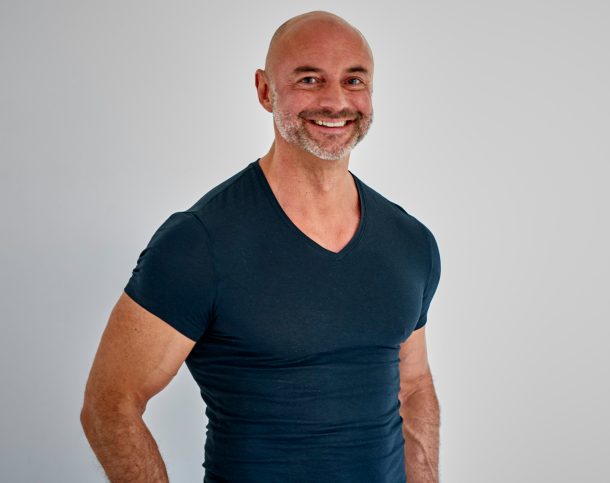Feedback can make us bitter or better. Robin Sharma.
2 weeks ago, my client wrapped up a leadership workshop for a global electronics company.
She felt it had gone well. Her client seemed pleased, but something nagged her.
How could she be sure her content truly resonated?
So, she asked her client for honest feedback.
The insights surprised her and taught her the power of having a feedback loop.
To some the feedback might seem brutal.
To my client it was received with gratitude.
Today, I want to share 5 insights of our debrief.
Why embracing feedback is a vital growth hack to becoming a better coach.
Let’s dive in.
1: Align with your evolving client needs
Imagine you’ve delivered a workshop on communication skills to high-potential managers.
The head of Learning & Development, approaches you afterwards.
“This was great.” she says, “But I noticed some participants disengaging during the talking parts. I wonder if adding more interactive exercises would help sustain attention?”
This feedback is gold.
It enables you to spot gaps between your content and your clients’ needs that you may have missed.
By requesting input, you ensure your coaching remains impactful as their situation changes.
You can even adjust on the fly to better meet them where they are.
2: Clarify your strengths and growth areas
When was the last time you asked a client: “How can I be an even better coach to you?”
It’s a vulnerable question, but also a powerful tool for accelerated growth.
It’s easy to neglect your own development.
You know certain aspects of your coaching style work well. While others have room for improvement.
But unless you explicitly seek input, you’ll remain blind to what those are.
Imagine your client shares: “I appreciate how you always take the time to really understand my challenges. Your empathy helps me open up. But I’ve also noticed that when presenting new frameworks, you can come across a bit uncertain.”
This feedback illuminates your strengths and areas for address.
You can now leverage your empathy superpower while working on smoother framework delivery.
But take it personally and you’ll end up obsessing over “being a bit uncertain” and miss the big opportunity.
By embracing input objectively you can speed up intentional growth.
Allowing you to focus on high impact areas like coaching presence and confidence.
3: Real time program optimisation
You’ve developed a powerful communications workshop and delivered it to rave reviews.
But you’re not one to rest on your laurels.
After each session, you distribute a quick survey to collect improvement ideas.
Several participants suggest adding role play exercises to practice tricky conversations.
Others request more time for personal reflection and action planning.
This feedback becomes an invaluable blueprint for optimising the program.
Rather than reinventing the wheel for each client, you now have an evolving foundation you can customise.
Enabling you to tweak your approach and deliver incredible value, every time.
4: Expand your self-awareness
The most impactful coaches have a keen understanding of their blind spots.
They know themselves well and are more likely to show up purposefully for their clients.
In short, they have high self-awareness.
Developing this self-knowledge requires consistently examining how your coaching lands with others.
This insight may reveal
- What unconscious habits and patterns you have
- Where is there misalignment between your intent and impact?
By seeking feedback, you gain insight into how you’re experienced.
For example, coming across as uncertain invites the reflection.
“What shifts in my tone or body language could project more calm confidence?”
Feedback provides a mirror for:
- Spotting your edges
- Growing your capacity to self-manage
- Being in service to your clients.
5: Model a growth mindset
As a coach, one of your primary aims is to help clients cultivate a growth mindset.
A belief that their abilities can always be developed through dedication and hard work.
You want them to see challenges as opportunities to expand, not threats to avoid.
But you can’t offer this perspective if you’re not embodying it yourself.
By proactively seeking feedback on your own blind spots and skills, you normalise continuous improvement.
Everyone’s a work in progress.
You make it safe for clients to embrace their learning edges.
Imagine the powerful message it sends when you open a workshop by saying, “I’m always striving to improve these sessions.
At the end, I’ll ask for your direct feedback on where I can improve.”
You’re demonstrating that growth is an ongoing practice, not a weakness to hide.
And that inspires clients to risk vulnerability in service of their own evolution.
Conclusion
To become the coach you’re capable of becoming, make feedback your friend.
Be the coach who delivers ever increasing value by courageously asking how and what they can improve.
Expand you own potential so you can be of service in helping others.
So, here’s my challenge to you:
Make feedback your new best friend.
Build it into every coaching interaction.
Risk the discomfort of asking “How can I support you more powerfully?”
Then listen with an open, curious mind.
Will it feel vulnerable?
Absolutely.
But on the other side of that discomfort is a new level of impact.
A coaching presence grounded in humility, transparency, and walking the talk.
As Brene Brown said, “If we shield ourselves from all feedback, we stop growing.”
Now if you’ll excuse me, I have some feedback to go through!
Care to share yours?
I’d love to hear from you.


